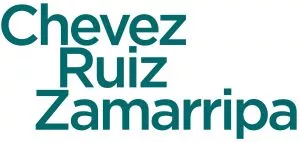- within Employment and HR topic(s)
- in United States
- within Employment and HR topic(s)
1. What kinds of incentive plan are most commonly offered and to whom?
The Federal Labour Law ("FLL") provides all employees with minimum mandatory benefits (Christmas bonus, vacation premium, vacations, profit sharing). In addition to the minimum rights provided by FLL, and based on the principle of contractual freedom, it is common practice that companies offer to certain executives or key employees members of the management, different fringe benefits or incentives. These incentives could be designed for short, medium or long-term purposes, hence they can comprehend different types of awards, entitlements or instruments.
The most common incentive plans offered by Companies in Mexico to their executives are:
- Salary-based commissions for sales;
- Performance bonuses which depend on the achievement of specific objectives;
- Share purchase plans or equity based incentives (i.e. Stock options, Restricted Stock units, among others);
- Retention awards
- Deferred compensation
- Hybrid plans containing a combination between cash and equity.
- Private retirement or pension plans.
2. What kinds of share option plan can be offered?
Employers can offer their employees participation in different types of share/stock option plans, so long the plans comply with the Mexican law (i.e. restricted stock options, performance based stock options, among others). In other words, there are no specific limitations on the grant or offering of share or equity-based plans to employees or executives other than those provided by applicable law like securities or banking / financial regulation for specific public companies or regulated entities.
3. What kinds of share acquisition/share purchase plan can be offered?
Employers can offer to their employees all type of share acquisition / purchase plans (i.e.. direct purchase, stock options with vesting periods, discounted shares price or free of charge and units convertible into stock, among others). The most common share plans used in Mexico are option plans that give the Employees the right to buy a certain number of shares or stock of their Employer Company, a Subsidiary of it, or from the Holding Company. Employees can generally exercise their share options and acquire the underlying stock after a specified period (vesting period.)
4. What other forms of long-term incentives (including cash plans) can be offered?-
Common long-term incentives (cash or equity based) in Mexico are:
- Retention awards;
- Deferred cash compensation awards;
- Private, pension plans;
- Stock Options
- Stock Appreciation Rights
- Phantom Stock
- Performance Shares
- Performance Share Units
- Restricted Stock Units
- Early retirement awards or plans
- Seniority awards or bonuses
5. Are there any limits on who can participate in an incentive plan and the extent to which they can participate?
There are no limits in general and employers can set the parameters and scope. Therefore, employers can decide which employees can be part of a given incentive plan. Normally, share or equity-based plans as well as retention and special cash awards are offered only to high ranked executives or key positions. Tax considerations must be reviewed, however, for certain types of incentives and personnel.
6. Can awards be made subject to performance criteria, vesting schedules and forfeiture?
Yes, plans can be structured and offered subject to performance, vesting schedules, and forfeiture. However, for evidentiary and enforceable purposes, the awards and conditions must be set forth in writing. Also, there are specific awards that could be linked to performance of the company or the individuals and be tailored according to the needs of the company or employer.
On the forfeiture aspects, such plans should be crystal clear on the forfeiture causes or circumstances and on any clawback provisions because the Mexican labour law tends to protect employee's rights and recognize payment of awards once they accrue in favour of the employees. Clawback or payback by the employees can find certain limitations on the Federal Labour Law and release employees from certain payment obligations towards their employers.
7. Can awards be made subject to post-vesting and/or post-employment holding periods. If so, how prevalent are these provisions both generally and by reference to specific sectors?
Yes, awards can be subject to post-vesting and/or post-employment holding periods. However, for prevalence and enforcement purposes, the conditions must be set forth in writing. Such post-vesting and/or post-employment holding periods should be carefully drafted within the plans because they can trigger certain tax and labour liabilities (i.e. construal that any post-employment award payment could renew the labour relationship or not be counted for tax deduction where not properly justified).
8. How prevalent malus and clawback provisions are and both generally and by reference to specific sectors?
Malus provisions may be set for performance and target bonuses. To legally justify refusal of payment of the award, employers shall meticulously design their incentive plans in order to adequately cover when the award can be granted and when could be cancelled or forfeited, where performance results are below the expected target or where certain no payment circumstances take place.
Clawback provisions are more commonly used for employees whose compensation includes a base salary and variable compensation as well as in retention awards paid in advance to the retention periods. Since the amount of the award usually depends on the employee´s achievements on sales or fulfillment of retention periods, it is common practice that in these positions companies often allow the employee to participate in an incentive plan to acquaint themselves with the assigned market and region or for not quitting the position before the estimated time. As in malus provisions, employers shall meticulously design their incentive plans to adequately determine when payments might claw backed or paid back by the employee which usually takes place where their performance results are below the expected target or where retention periods are not met. The employee shall expressly authorize any withholding or retention for re-payment of any award or amount due to the employer with the limits set forth in the FLL. According to FLL, employers shall make deductions from an employee's salary only in certain cases. Discounts to salary can be applied to payments that have been made in advance, with the following restrictions: (i) the amount to be discounted must be no more than the equivalent of one month's salary (ii) the deductions must not exceed 30% of the difference between the salary and the minimum daily wage.
To view the full article please click here.
Originally published in Legal500
The content of this article is intended to provide a general guide to the subject matter. Specialist advice should be sought about your specific circumstances.





